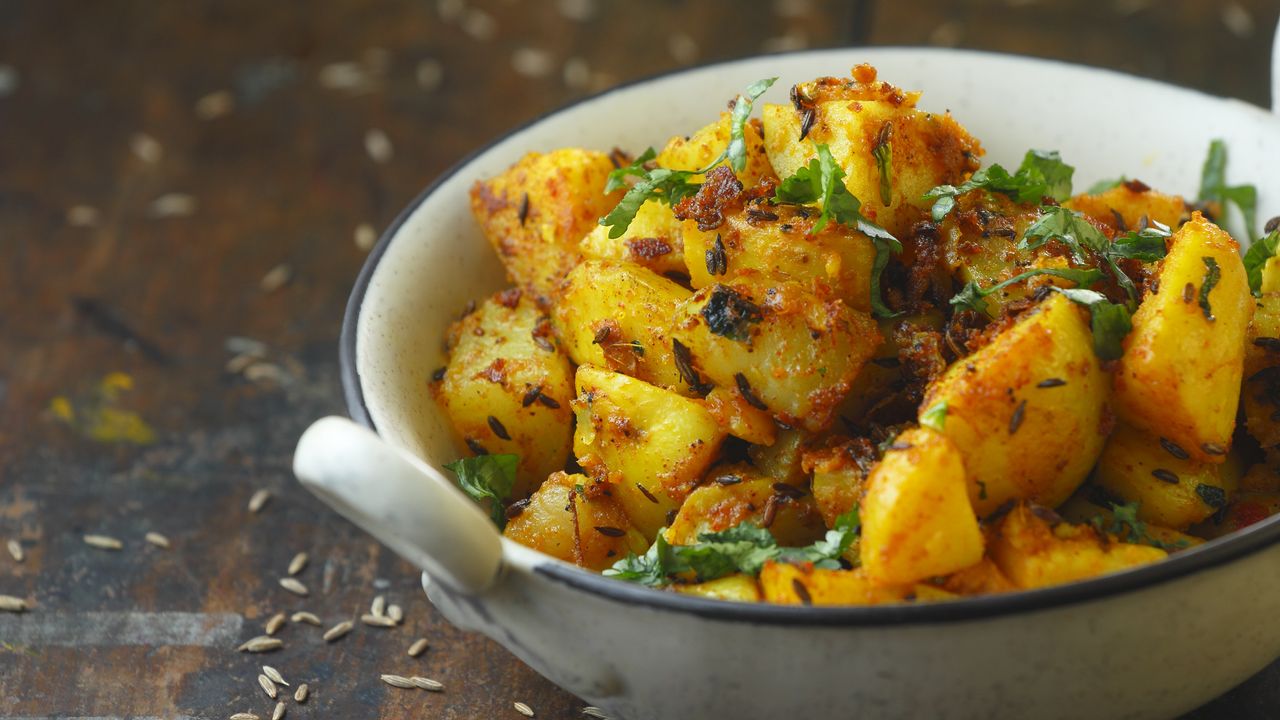
When I was younger and felt bloated, my mom would make me a cup of peppermint tea. It’s a habit I’ve kept up in adulthood, and it turns out she was on to something.
I got the chance to talk to Dipa Kamdar, registered pharmacist and senior lecturer in pharmacy practice at Kingston University in the UK, and discovered that there is good scientific evidence that some herbs and spices—including peppermint—make for effective digestive remedies.
You will find many of them available as supplements, but Kamdar warns that “it’s important to check with a healthcare professional if it's safe to use any of these natural products in supplement form as the dose is more concentrated, especially if you have other medical conditions or are on medication.
“However, sprinkling herbs and spices in your food may still give you the digestive benefits and make your food tasty at the same time.”
Here are the five herbs and spices that could improve digestion and gut health.
1. Peppermint
According to Kamdar, peppermint is effective because its active compound—menthol—relaxes the muscles of the gut, which can help with abdominal pain and bloating.
“Peppermint oil supplements have strong clinical evidence, especially for IBS,” says Kamdar. “They relax gut muscles and reduce spasms, bloating and pain.”
Kamdar warns that peppermint oil might not be suitable for people who suffer from acid reflux, because it relaxes the muscle that prevents stomach acid coming back up into your throat and could cause heartburn especially if you haven’t eaten recently.
“Peppermint tea is gentler and may offer similar benefits,” says Kamdar, “though less potent and the amount of menthol in there is not standardised like in supplement form, so you could get differing amounts each time. It’s suitable for general digestive discomfort.”
Kamdar recommends one to two cups of peppermint tea daily, ideally after meals, to help with digestive discomfort. If taking supplements, typically it would be one or two “enteric-coated” capsules (so it releases in the intestine rather than the stomach), taken two to three times daily.
2. Chamomile
Chamomile tea is well known for being a relaxant and according to Kamdar, it’s also good for the gut.
“Chamomile’s anti-inflammatory and antioxidant properties may help soothe the stomach lining and support healing,” says Kamdar, “but it’s important to note we only have animal studies which show that it may help with stomach ulcers, and no studies in humans.”
She says chamomile is “generally safe”, but notes some people are allergic to it and that there isn’t a scientifically-established safe amount of chamomile tea to drink, as more extensive research is needed.
“Studies which have been done usually test between one to four cups of chamomile tea and this seems to be a safe amount of chamomile tea with little adverse reactions, unless you have an allergy of course,” says Kamdar.
“It may be possible to drink more cups of tea without adverse effects, but this has not been tested in trials, plus there is usually variability between individuals as to how much they can consume without any side effects.”
3. Ajwain
Ajwain seeds, also known as bishop’s weed, are often used in Indian cooking and Ayurvedic medicine. “The compound thymol in ajwain was found to stimulate the stomach to produce more acid in animal studies,” says Kamdar. “Stomach acid is needed to break down foods and it can also activate digestive enzymes to help break down food.
“Stomach acid is also needed for nutrient absorption for some vitamins and minerals. Ajwain seeds can help the process of digestion this way—and ease indigestion subsequently. They also might help relax the muscles in the gut, which can help ease flatulence.”
4. Fennel
In India and some other cultures, it’s common to chew fennel after a meal to help the digestive process and freshen the breath. Fennel seeds are also beneficial as they are very high in insoluble fiber, which is especially good for a healthy gut. This type of fiber doesn’t dissolve in water and goes through your digestive system without being digested, which adds bulk to stools and can prevent constipation.
Kamdar recommends using the whole of the fennel plant—seeds, leaves and bulb—in cooking. “However, traditionally, people use fennel seeds, not leaves or whole bulbs, for digestive relief by chewing half to one teaspoon of seeds after meals,” says Kamdar. “You can also consume fennel tea, which can be made using the seeds steeped in hot water, or buy it from a health food store.”
5. Cumin
If you want to improve gut health and your digestion then cumin is another spice worth adding to your shopping cart.
“Cumin stimulates digestive enzymes and bile production, aiding digestion and reducing bloating,” says Kamdar. “There are a number of ways to use it, but usually you just add the seeds to your cooking.
“You can toast the seeds in oil before cooking to release aroma and oils, or add around half to one teaspoon of ground cumin to curries, soups, or rice dishes—it's actually part of the spice mix you can add as a base for many curries. My personal favourite is a simple aloo jeera (cumin-spiced potatoes).”







